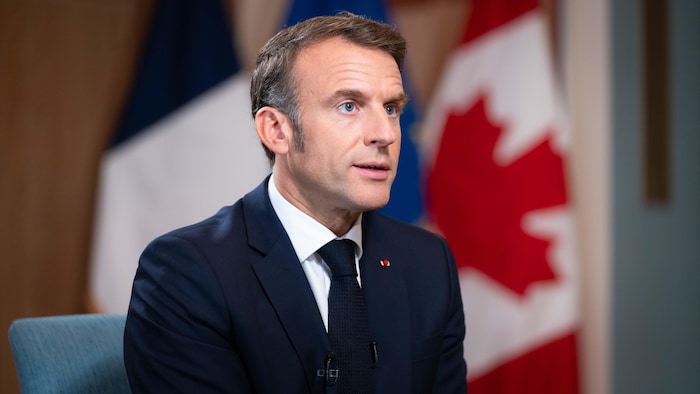
Macron Rejects “Ni-Ni” Stance on Quebec Relations
In a recent interview with Radio-Canada, French President Emmanuel Macron addressed the historical phrase "non-ingérence, non-indifférence," often referred to as “ni-ni,” which describes France's traditional stance regarding Quebec's relationship with Canada. Macron's decision not to embrace this term marks a significant shift in diplomatic rhetoric. He emphasized that adopting this phrase would only add unnecessary emotion to an already tense political debate. This reluctance to align himself with a well-established position demonstrates his intent to approach the complexities of Canadian politics with caution and respect.
During the bilingual interview, conducted at the French embassy in Ottawa, Macron expressed a clear desire not to interfere in Canada’s political landscape. He stated, "I don't want to add complexity or emotion to a context that is already heated." This assertion is particularly relevant as Quebec's political climate has been stirring, especially with the Parti Québécois leading in polls following a recent by-election victory. They have promised to organize a third referendum on sovereignty if they regain power, a move that further complicates France's relationship with Canada.
Also Read:- Daniel Ricciardo's Departure from Red Bull: A Farewell to a Formula 1 Icon
- Hurricane Helene: Stay Alert Against Cyber Fraud and Scams
Macron's comments also reflect an awareness of the precarious situation in Ottawa, where the Conservative Party is attempting to unseat Prime Minister Justin Trudeau's minority government. He affirmed his admiration for Trudeau's approach, advocating for an open and innovative economy while recognizing the political challenges facing him. Macron's respectful acknowledgment of Canada's sovereignty and his refusal to impose French ideals underscores his commitment to a more collaborative and supportive partnership.
Beyond Canadian domestic politics, Macron's interview also touched on international issues, particularly the ongoing conflict between Hezbollah and Israel. He called for a ceasefire, reiterating that Israel must respect Lebanon's sovereignty while showing hesitance about increasing France's military presence in the region. Macron stressed that his role is not to dictate policy but to foster dialogue and mutual respect, which is critical during tumultuous times marked by global conflicts.
Throughout the interview, Macron also reflected on the unpredictable nature of public life, stating that just like in personal relationships, politics has its ups and downs. This candid remark highlights his understanding of the challenges faced by political leaders, especially during crises.
In summary, Macron's visit to Canada and his refusal to adopt the "ni-ni" stance signifies a nuanced approach to international relations, prioritizing respect and understanding over traditional rhetoric. His commitment to constructive dialogue and cooperation, both within Canada and on the global stage, sets a tone for future interactions between France and Canada. As we navigate a complex world rife with conflict and uncertainty, leaders like Macron emphasize the importance of dialogue, respect, and a willingness to listen.
Read More:


0 Comments